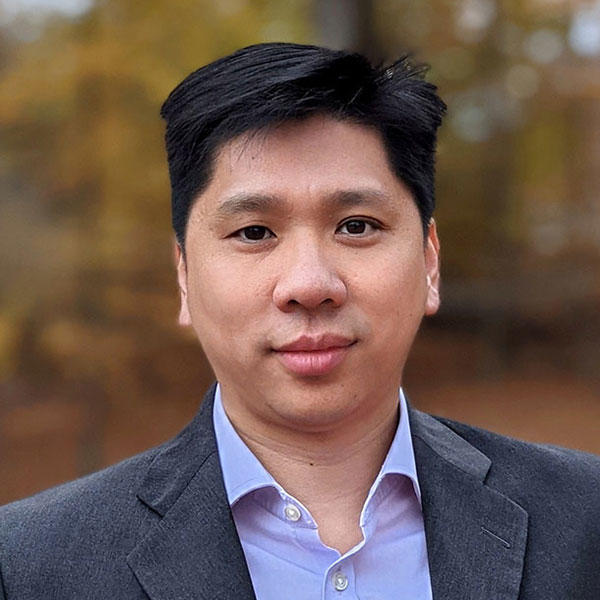Li Cheung Appointed Earl Stadtman Tenure-track Investigator
, by Jennifer K. Loukissas, M.P.P.
Li C. Cheung, Ph.D., M.S., was appointed Earl Stadtman tenure-track investigator in the Biostatistics Branch (BB) in October 2021. Dr. Cheung studies the etiology and natural history of cancer, focusing on the development, implementation, and translation of statistical methodologies to understand cancer progression to inform actionable guidelines for prevention and early detection. His interests span multiple cancer sites, with special emphasis on cancers of the lung and cervix, where screening and early detection drastically reduce morbidity and mortality associated with these malignancies, and for oral cancer where screening approaches have yet to be defined.
Dr. Cheung evaluates screening strategies for cervical, lung, and oral cancers and has provided much of the statistical support for DCEG research in each of these areas. In addition, he is the lead statistician for the ASCCP Risk-based Consensus Management Guidelines for the early detection of cervical cancer. He received the ASCCP Service Recognition Award for his contributions to the development of the guidelines.
As a tenure-track investigator, Dr. Cheung will integrate his knowledge and experience in characterizing the etiology and natural history of cancer by developing novel statistical approaches to analyze complex data from population-based studies. In particular, he will focus on developing multi-state models to assess the effects of exposures, biomarkers, and demographic factors, on the length of time that participants spend in different pre-clinical or clinical states. These types of models applied to population-based datasets will allow for the investigation of novel strategies for the prevention and early detection of cancer. Such analyses are challenging in data from electronic health records—which provide rich resources but also include the bias inherent in clinical practice, with measurements taken at irregular intervals that may be related to underlying health issues of the individual or may be missing. Among the many studies that will benefit from his methodological work is the Connect for Cancer Prevention Study, a new prospective cohort of 200,000 adults in the United States designed to further investigate the etiology of cancer and its outcomes, which may inform new approaches in precision prevention and early detection.
